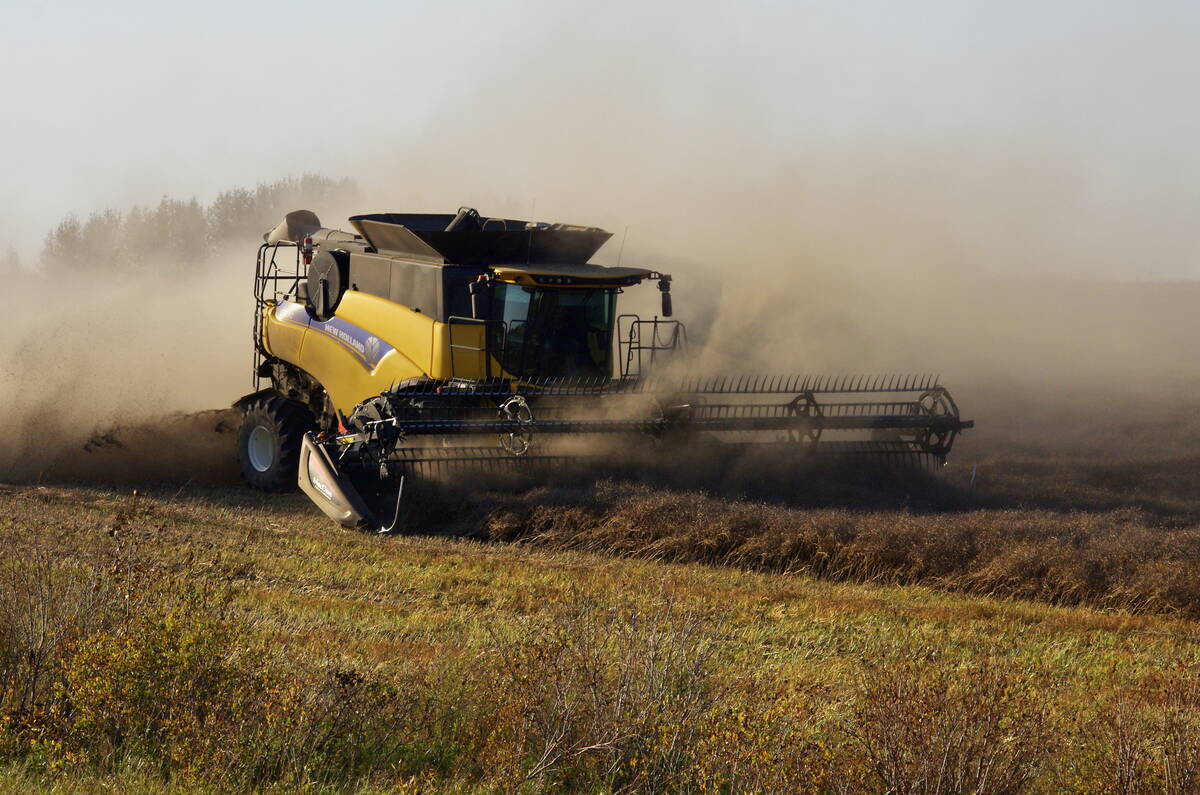Jan. 6 — Outside markets were stronger today, with gold showing double-digit gains and crude oil closing above resent resistance levels, which encouraged speculative finds to continue buying and pushing values higher.
A lower U.S. dollar helped support wheat and corn markets, while beans continue to come under pressure from continued reports of better-than-expected crop potential in South America. The U.S. dollar index fell 15-100ths of a cent today.
Gold closed up $17.80 at $1,135.90 today, while the Canadian dollar closed up 0.63 cents at US96.82 cents. The Dow Jones March contract closed up at 10,516 today.
Read Also

ICE Canada Weekly: Canola premium required
In order to get Canadian farmers to plant at least the same amount of canola this spring as they did last spring, they are likely going to need a premium, said Jerry Klassen, analyst with Resilient Capital in Winnipeg.
In the energy sector, crude oil closed up $1.41 per barrel, at US$83.18.
Corn closed up three to four cents per bushel today while beans closed mixed, up 2.4 to down two cents a bushel.
Wheat markets closed up 13.4 to 15.4c/bu today; Minneapolis March futures closed up 15.2 cents a bushel.
Canola closed mixed, up $2.10 to down 30 cents per tonne today.
Western barley closed down $2.80 at $157.20 per tonne.
Talk that U.S. winter wheat crops could be in danger due to the recent harsh cold, as there is very little snow cover to protect the crops, helped push futures higher today.
No one will really know until spring when the crop starts to emerge, but the news was enough to spark buying interest by the speculative funds.
Stopped for salmonella
Canola struggled again today as the Canadian dollar continued to climb higher. Increased farmer selling and reduced crusher buying also added pressure today. Recent restrictions by the U.S. on canola meal shipments is impacting their business and profitability, which will no doubt impact canola futures values and the prices producers will receive for their canola if this issue is not resolved soon.
The federal government, through the Canadian Food Inspection Agency, is asking the U.S. to stop imposing restrictions on Canadian crushers’ exports of canola meal that are found to have salmonella.
The meal is tested prior to being shipped and so far has all been found to be free of salmonella, so somewhere in the transportation process is where the problem lies, according to industry sources.
Another issue is the fact that the product is not being used for human consumption. It’s being shipped as a protein source for livestock feed and is usually cooked again once it arrives at its destination. That would kill any salmonella that’s present, so how can the U.S. justify persisting with the restrictions?
Another interesting yet challenging issue that can and will have a major impact on Canadian agribusinesses and producers.
That’s all for today. — Brian
— Brian Wittal has spent over 27 years in the grain industry, including as an elevator manager and producer services representative for Alberta Wheat Pool, a regional sales manager for AgPro Grain and farm business representative for the Canadian Wheat Board, where he helped design some of the new pricing programs. He also operates his own company providing marketing and risk management advice for Prairie grain producers. Brian’s daily commentaries focus on how domestic and world market conditions affect you directly as grain producers.
Brian welcomes feedback and information on market conditions in your area, such as current offering prices, basis levels, trucking premiums and special crops contracts. Contact Brian today.














